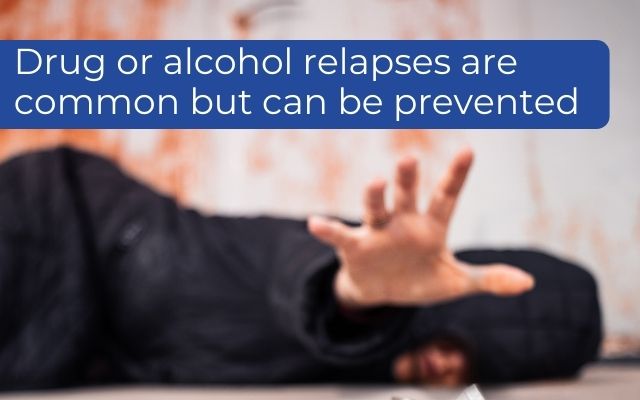Addiction is often described as a relapsing condition and many people relapse after treatment, which is why relapse prevention is important.
The United States’ National Institute on Drug Abuse (NIDA) defines addiction as “a chronic, relapsing disorder characterized by compulsive drug seeking, continued use despite harmful consequences, and long-lasting changes in the brain”.
According to NIDA, between 40 and 60% of people experience at least one relapse after completing rehabilitative treatment. Importantly, these rates are similar to other chronic conditions: Between 30 and 50% of individuals with diabetes relapse after treatment.
But research shows that including a relapse prevention plan in rehab programmes greatly reduces the likelihood of a relapse. Relapse prevention can also help clients overcome a relapse more quickly and return to recovery sooner with fewer negative consequences.

This is the 10th post in our blog series 20 things you should know about rehabilitative treatment: What works. This list was compiled by the European Association for the Treatment of Addiction, according to the latest evidence.
Preventing a relapse: What is relapse prevention?
It is becoming more common to include relapse prevention plans or strategies in rehab because they have been found to greatly reduce the chances of a slip up. Relapse prevention centres on providing clients with practical skills to avoid and cope with potential relapse triggers.
According to the Recovery Research Institute, relapse prevention is “a skills-based, cognitive-behavioral approach that requires patients and their clinicians to identify situations that place the person at greater risk for relapse”. These situations include internal experiences, for example, automatic thoughts such as “positive thoughts related to substance use or negative thoughts related to sobriety”. However, these situations are often based on external cues for example, people a person used to use with or coming into contact with the actual problem substance, be it drugs or alcohol.
Once these situations are identified as potential triggers to relapse, the client and their treatment professional will work on developing coping strategies for these triggers. These include both cognitive and behavioural strategies.
As a client is able to cope better with triggers, he or she develops greater confidence when handling challenging situations without the use of drugs or alcohol.
Responding to a relapse
Relapse prevention also includes how to respond to a slip up so that it doesn’t turn into a full-blown relapse as well as limiting the damage of a full-blown relapse should it occur.
Relapse is often a gradual process that goes through a number of stages. Relapse prevention plans help clients recognise early stages of a relapse in order to avoid progressing to later stages.
But the reality is that relapse is common. Relapse prevention plans also explore ways a client can respond to a ‘lapse’ so it does not turn into a protracted relapse.
Research shows that “significant proportion (40–80%) of patients receiving treatment for alcohol use disorders have at least one drink, a ‘lapse,’ within the first year of after treatment, whereas around 20% of patients return to pre-treatment levels of alcohol use”.
A common reaction to a lapse, in other words using the substance once after quitting, is thinking that it is a failure and, as such, ‘I might as well continue using because I have already failed’.
In relapse prevention treatment, this kind of thinking is explored and challenged helping clients quickly get back on track instead of continuing to use or drink after a lapse.
Feelings of guilt and shame are also integral to a relapse becoming protracted and severe. These feelings are also explored in relapse prevention plans so clients are aware of how they can influence the severity of a relapse.
It is important to remember that a relapse doesn’t need to be seen as a failure. If you seek help soon after a relapse, the harm and destruction can be greatly reduced. A relapse might mean you need to strengthen certain aspects of your recovery programme. It can also be a sign that you might need further treatment.
Ultimately, relapse prevention encourages the client to seek help before or during a lapse or relapse. Asking for help in recovery is one of the most important aspects of responding to a relapse or preventing one in the first place.
Relapse is common but not inevitable
A common myth about recovery is that relapse is inevitable. The statistics show that relapse is indeed common, but it does not mean that it cannot be avoided and prevented.
There are many people in recovery who have not experienced a relapse. Just because relapse is common it does not mean it has to happen to you in order for you to qualify as an addict or alcoholic.
Have you relapsed and need help? Contact us today.
